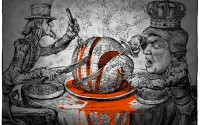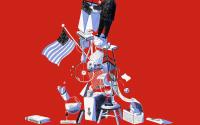18 July 2007The Independent
When New Labour came to power in 1997, one of the benefits it promised - and it was much talked about at the time - was a "joined-up" transport policy, a rationally thought-through national transportation system. Now we find that train and bus costs are soaring while car costs are plunging, and whatever that might be, joined up it surely isn't. What's gone wrong?
Despite the rhetoric, Labour stuck with the basic attitudes to transport it had inherited from the Tories, especially on the fundamental issue: should public transport be thought of as a social service, or a profit-making business?
The Tories firmly believed it should be a business, standing or falling by the dictates of the market. They deregulated the bus industry; they privatised the railways (while privatising British Airways into the bargain). They wanted to reduce state subsidies, and they wanted the disciplines and benefits of competition.
Well, competition can give you some benefits, such as increased efficiency, but as we have learnt to our cost it doesn't give you a clean environment, and neither does it give you transport convenience or a national transport network. If the prime object of a bus or train company is to maximise shareholder return, why should it provide a service to your out-of-the way village if that service makes a loss? And why shouldn't it jack up fares as far as it possibly can?
When New Labour ditched Clause IV and embraced the market, this is the attitude that was inevitably taken for Britain's transport system. But as Stephen Joseph, head of the pressure group Transport 2000 points out, it doesn't have to be like this. Other European countries such as the Netherlands, Germany or Switzerland, see public transport in social-service terms, and see national networks and affordable fares as legitimate policy objectives. In Britain the Mayor of London, Ken Livingstone, has taken this view, but he is at odds with the Government.
The market has favoured the car over public transport in other ways, too. For while fuel costs may be rising, the fixed costs of motoring - the costs of vehicles, the cost of insurance, say - have been steadily forced down by competition. And by an unfortunate irony, the drive to produce more fuel-efficient vehicles in the cause of reducing greenhouse gases has, perversely, made motoring cheaper, and encouraged people to drive more.
Why expect people to use public transport when driving a car is often easier and cheaper? What price a joined-up policy now?






